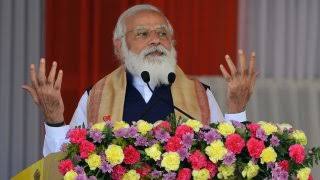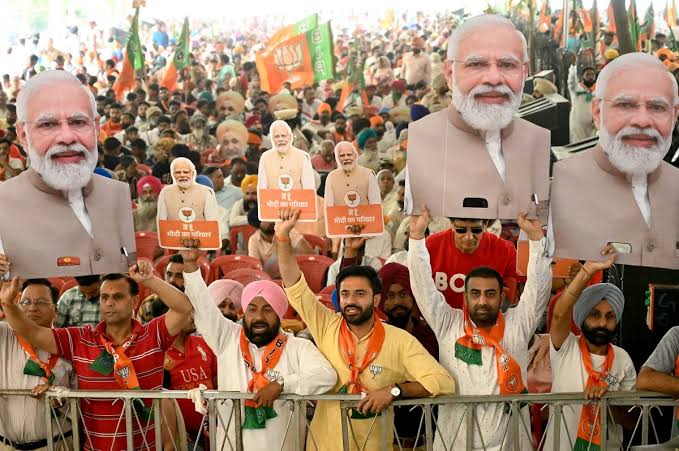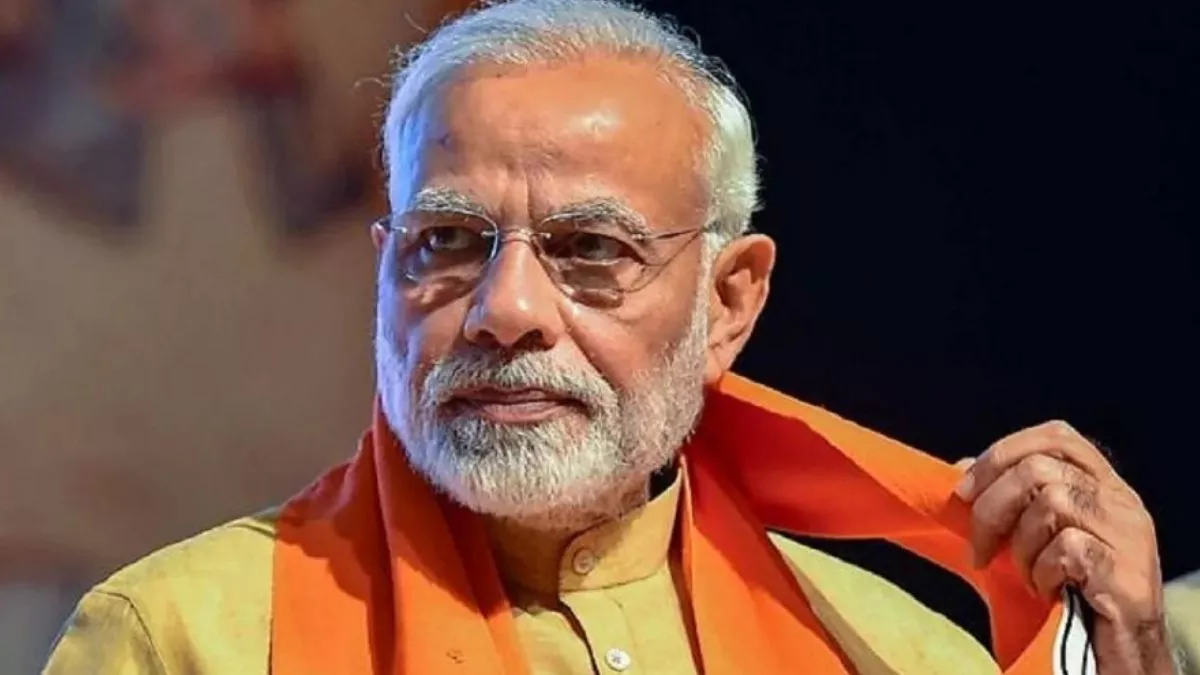- Final results, expected on Tuesday, may differ from exit poll projections.
- India’s election, the largest democratic exercise globally, involved nearly a billion eligible voters over seven phases starting April 19.
- With 543 contested seats in the lower house, the party or coalition needing at least 272 votes will form the government.
 India’s Prime Minister Narendra Modi appears poised for a rare third consecutive term, with local exit polls on Saturday indicating that his Bharatiya Janata Party-led alliance will secure a parliamentary majority.
India’s Prime Minister Narendra Modi appears poised for a rare third consecutive term, with local exit polls on Saturday indicating that his Bharatiya Janata Party-led alliance will secure a parliamentary majority.
Exit polls summarized by local news channel NDTV suggest that the BJP-led National Democratic Alliance is likely to win about 365 out of the 543 seats in the lower house of parliament. The coalition or party with at least 272 votes will form the government. However, final results expected on Tuesday may differ from these projections.
If confirmed, Modi will serve another five years as prime minister, a role he has held since 2014.
India’s election, the world’s largest democratic process involving nearly a billion eligible voters, was conducted in seven phases over six weeks starting on April 19. A total of 543 seats were contested in the lower house, with 272 votes needed to form the government.
Under Modi’s decade-long leadership, India has experienced significant economic growth and an enhanced global standing. Home to 1.4 billion people, India’s economy grew by 7.2% in the fiscal year 2022-2023, the second-highest growth rate among G20 countries. The International Monetary Fund projects growth of 6.8% in 2024 and 6.5% in 2025, compared to China’s projected growth of 5% in 2024 and 4.5% in 2025.
Some economists are even more optimistic. “Achieving 7%-7.5% growth is possible, especially with a focus on improving infrastructure,” said Sujan Hajra, chief economist at Anand Rathi Share and Stock Brokers, to CNBC.
India’s budget will be the first major task for the new government, with significant emphasis expected on enhancing the country’s healthcare network, a shift from the recent focus on hard infrastructure improvements, according to Hajra.
In its manifesto, the BJP has pledged to elevate India to one of the world’s top three economies, combat poverty, open new growth avenues, and tackle corruption.
Despite the global optimism about India’s growth under Modi, some observers and critics warn that his third term could signal further democratic backsliding. Modi has faced accusations of hate speech and deepening religious divides, notably calling Muslims “infiltrators” at a rally shortly after voting began. Unemployment also remained a pressing issue during the election. A survey by the Centre for the Study of Developing Societies found unemployment was the top concern for 27% of the 10,000 respondents, with 62% reporting increased difficulty in finding jobs over the last five years.
Foreign investors are cautiously awaiting the election results. Malcolm Dorson, a senior portfolio manager at Global X ETFs, noted that even if Modi’s alliance does not reach the 400 seats he anticipated, maintaining a majority close to the 303 seats won in 2019 would be positive for the Indian equity market.




